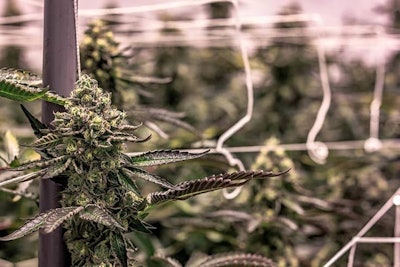
Christian | Adobe Stock
This week, the cannabis industry began looking toward a September House vote on the Marijuana Opportunity, Reinvestment and Expungement (MORE) Act, legislation that would federally decriminalize cannabis by removing it from the Controlled Substances Act. Elsewhere, in Massachusetts, the Cannabis Control Commission amended its quarantine order for the more than 600,000 vaping products that have been in limbo since late last year, allowing companies to retest and sell previously the quarantined products.
Here, we’ve rounded up the 10 headlines you need to know before this week is over.
- Federal: The U.S. House of Representatives is planning a floor vote on the Marijuana Opportunity, Reinvestment and Expungement (MORE) Act, legislation that would federally decriminalize cannabis by removing it from the Controlled Substances Act. The upcoming vote, planned for September, could lead to monumental progress for the industry, according to industry stakeholders, even if the legislation encounters roadblocks in the Senate, where its passage is less likely. Read more
- ASTM International is developing a cannabis and hemp sampling standard to help farmers achieve better homogeneity for testing samples and reduce the risk of misrepresented products. ASTM’s proposed standard on flower sampling, which is expected to be released in roughly six months pending unanimous approval from at least 60 percent the more than 900 Cannabis Committee members (who hail from 26 countries), would detail exactly how farmers should go about collecting samples for testing. Read more
- Arizona: Gov. Doug Ducey has submitted statements in opposition to three of the four ballot measures expected to appear on the state’s 2020 ballot, including one that would legalize adult-use cannabis. Ducey called the ballot initiative, which was supported by Smart and Safe Arizona, “a bad idea based on false promises,” saying that experiences from other states with legalized cannabis point to more highway deaths, increases in teen drug use and more newborns exposed to cannabis. Read more
- Nevada: A proposed settlement that would reshuffle some of Nevada’s adult-use dispensary licenses could end a legal battle between the state and businesses that were not granted licenses in 2018. Some of the plaintiffs challenged the proposal, alleging collusion, but the Nevada Tax Commission has agreed to approve the agreement contingent upon the approval of the Cannabis Compliance Board. Read more
- Illinois: The state’s cannabis dispensaries set another sales record in July, selling $61 million worth of adult-use cannabis products. Since the adult-use market opened in January, dispensaries have sold nearly 6.7 million cannabis products for sales totaling more than $300 million. Read more
- The Cannabis Business Association of Illinois has submitted a letter to Gov. J.B. Pritzer, urging him to use a portion of the state’s cannabis tax revenue to support social equity applicants, who have been awaiting one of Illinois’ long-delayed licenses. In the most recent of a series of licensing delays resulting from the COVID-19 pandemic, Illinois indefinitely postponed issuing craft grow, infuser and transporter licenses July 1, and applicants have since said they are in limbo and quickly losing money as they await their licenses. Read more
- Massachusetts: More than 600,000 vaping products quarantined in Massachusetts last year can now be retested and sold or reclaimed and repurposed into other products if they meet safety standards, according to a Aug. 3 press release from the Cannabis Control Commission (CCC). After three rounds of testing and a public comment period launched in July, the CCC concluded that businesses may retest and sell products, which must include modified warning labels that explain the product was previously quarantined and rested. Read more
- Pennsylvania: The University of Pittsburgh and Parallel have announced a relationship to establish a clinical research program to study medical marijuana under Pennsylvania’s medical cannabis research program. As part of a 10-year agreement, Parallel, through Goodblend, its retail brand, will provide the university an initial $3 million in unrestricted grants to be used for the exploration of the efficacy and safety of medical cannabis with an initial focus on treating sickle cell disease symptoms. Read more
- Michigan: The Marijuana Regulatory Agency is removing a requirement that businesses must hold a medical cannabis business license to apply for an adult-use permit, meaning that entrepreneurs can apply for standalone adult-use cannabis licenses starting Nov. 1. Andrew Brisbo, the agency’s executive director, told Benzinga that industry stakeholders and regulators have decided to open the market up to non-medical cannabis licensees in an effort to address social equity issues and promote the creation of equity programs. Read more
- Northern Mariana Islands: The Cannabis Commission has announced the launch of applications for both commercial cannabis licenses and the noncommercial Homegrown Marijuana Registry. The commission officially adopted the proposed rules and regulations for the program during its June 23 meeting, and began accepting the commercial and noncommercial applications on Aug. 4, which marked the official launch of the Commonwealth’s cannabis industry. Read more























